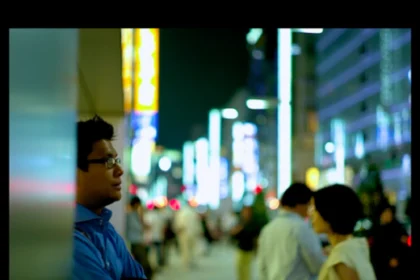zero-privacy living: Privacy isn’t dead—it’s being rebranded. In 2025, younger generations aren’t just oversharing—they’re reshaping the very idea of what it means to be “private” online. From TikToks filmed in bedrooms to real-time location sharing, it’s a whole new playbook. But are Gen Z and Gen Alpha really careless—or just redefining the rules?
📱 Oversharing as Identity: Why Gen Z Is All In
TikTok made it cool to be candid.
Teens and 20-somethings don’t just post what they ate—they post their therapy sessions, their breakups, their trauma, and their triumphs. In fact, a scroll through #dayinmylife or #storytime TikToks shows just how emotionally naked this generation is willing to get—for views, yes, but often for community.
Unlike older generations who grew up guarding their diaries, today’s youth are publishing theirs in 4K. It’s not about narcissism—it’s about narrative.
“I don’t see it as ‘oversharing.’ It’s just…my life. And I want to feel seen.” — @itsmedani, TikTok
“If I can help ONE person by sharing something raw or real, then I’ve done something good.” — @miah3art, X 🧠
🧩 Curated Vulnerability: This Is Privacy (Sort Of)
Here’s the twist: Gen Z does care about privacy—it just looks different.
According to a MediaSmarts study, many teens define privacy not as secrecy, but as control. Who sees what. When. How long. On what platform.
So yes, they’re open books—but only on their terms.
Apps like BeReal and Snapchat give users timed, disappearing, or inner-circle content tools, offering a sense of agency. Meanwhile, Instagram “Close Friends” stories and Finstas (fake Insta accounts) allow for curated levels of intimacy.
This is privacy by design, not by default.
🛡️ The Safety Mirage: Platform Promises vs. Reality
Despite digital savvy, many young users take platforms at face value. They believe TikTok’s “private” toggle or Instagram’s “Only Me” archive truly protects them.
But history—and data—suggest otherwise.
In 2024, Meta faced renewed backlash over WhatsApp’s location data leak. And earlier this year, a New York Times article revealed that even encrypted apps are vulnerable to data scraping via AI tools.
The trust gap is growing. But Gen Z, perhaps out of resignation, seems to be saying: “Well, they already have our data anyway—might as well own it.”
🧠 The Mental Health Catch: TikTok Therapy or Trauma Dump?
Being open online can be empowering. But it’s also emotionally risky.
Therapists are increasingly warning about the psychological cost of “performative vulnerability”—a term describing when users share deeply personal stories for clout or validation. Some teens end up chasing engagement at the expense of healing.
This isn’t new to BigTrending readers. We saw a similar pattern in our deep dive into therapy-speak going mainstream. What was once private inner work is now often crowd-sourced in comment sections.
And while virtual empathy can feel real in the moment, it’s not a replacement for support offline.
“I talked about my ED recovery and got 300K views. Now I feel like I have to keep performing that pain.” — @recoverjules, TikTok 🎭
🧬 The Algorithm Made Me Do It: Privacy vs. Popularity
Let’s break this down.
Why are young people so comfortable with zero-privacy living?
- The Algorithm Rewards Honesty: Personal = viral. The more real, raw, or revealing the content, the higher it climbs.
- Fame Feels Attainable: Unlike Hollywood stardom, TikTok virality is seen as democratic. Share your truth → blow up overnight.
- Peer Pressure Is Platform-Baked: Everyone’s doing it, and fear of missing out (FOMO) drives participation.
- The Social Currency of Sharing: Vulnerability equals authenticity—and authenticity equals social value.
It’s less about carelessness and more about cultural incentives. Attention is currency. Sharing is the hustle.
📜 Legal Backlash and Youth-Centered Regulation
Lawmakers are catching on—albeit slowly.
Nebraska’s Age-Appropriate Design Code Act, passed earlier this year, mandates that apps default to privacy-first settings for users under 18. Features like auto-location sharing and endless scroll are being reevaluated.
In the U.K., similar legislation is forcing platforms to rethink “addictive design” for young audiences. Some bills even propose giving users the right to wipe their data completely at age 18—a kind of digital do-over.
Could this be the beginning of a privacy renaissance?
Or will kids just migrate to newer, less-regulated platforms?
👨🏫 What Parents and Educators Can Actually Do
We’re not putting the genie back in the bottle. But we can teach better digital hygiene.
Here’s where to start:
- Discuss digital boundaries early: Treat online presence like real-life consent.
- Encourage critical thinking: Who benefits from your overshare? Is it empowering or performative?
- Model mindful use: Kids mimic adults. If parents post everything, kids will too.
- Stay updated on tech trends: Know what your kids are using before it becomes a headline.
Schools are catching up too. Some high schools now offer “digital literacy” electives that cover influencer culture, data tracking, and media manipulation. Finally.
🔚 Final Thoughts: A Brave, Transparent New World?
So—why don’t young people care about privacy?
They do. Just not in the way we used to.
In a world where surveillance is a given and exposure is currency, Gen Z isn’t opting out—they’re opting in. They’re hacking the system by telling their own stories first, before anyone else can.
The question isn’t, “Why are they doing this?” It’s “What does it mean for the rest of us?”
Maybe zero-privacy isn’t carelessness—it’s power reframed.
❓ FAQ: What People Are Searching
Q: What is zero-privacy living?
It refers to the growing trend—especially among younger generations—of sharing nearly all aspects of life online, often without concern for traditional privacy boundaries.
Q: Why don’t young people value privacy anymore?
They still value it, but define it differently—focusing on control over content rather than secrecy.
Q: Is oversharing on TikTok dangerous?
It can be. It opens doors to cyberbullying, identity theft, or emotional burnout. But for many, it also fosters community and healing.
Q: Can kids really erase their digital footprint at 18?
Some proposed legislation, like Australia’s Children’s Online Privacy Code, would grant that right. But in practice, full erasure is complex.









